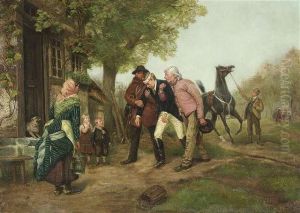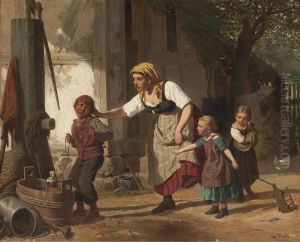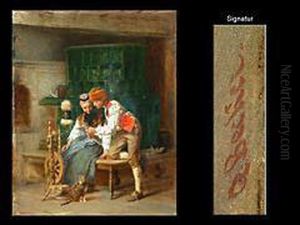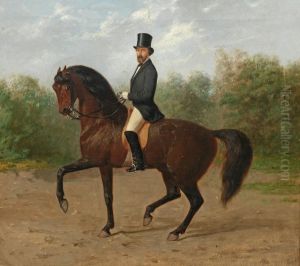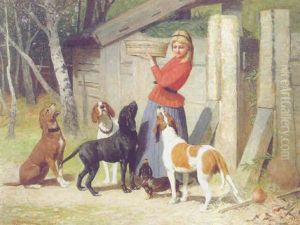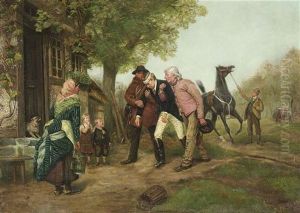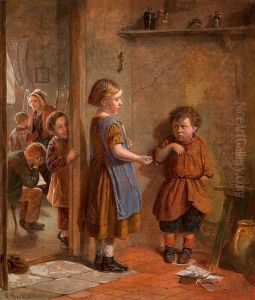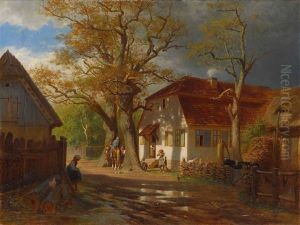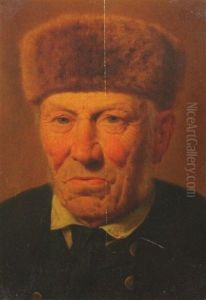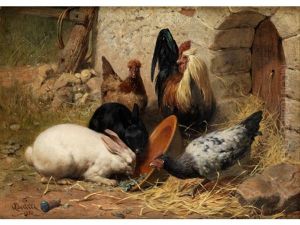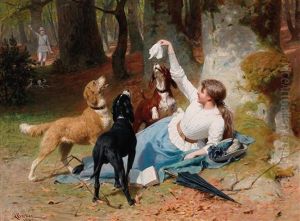Albert Becker Paintings
Albert Becker was a German composer, conductor, and pianist born on April 28, 1834, in Quedlinburg, Germany. Not to be confused with other individuals sharing his name, Becker was primarily recognized for his contributions to choral music and was an exponent of the music traditions of his time, which was the Romantic period. Becker's compositions, though not widely known today, were reflective of the rich harmonic language and the expansive emotional expression that characterized 19th-century German music.
Becker showed musical talent at an early age and pursued his musical education with dedication. He started his professional career as a conductor and later held various positions as a church musician. His work included both conducting choirs and playing the organ, which would have been typical for a musician of his era engaged in church and choral music. Becker's involvement in the musical life of his time extended to teaching, and through this, he influenced a number of younger musicians and composers.
His compositional output includes a variety of works, but he is most noted for his sacred music compositions. These works often featured intricate choral arrangements and were designed for performance within a liturgical context. Becker's music, like that of his contemporaries, was often infused with a sense of national identity, reflecting the burgeoning sense of German nationalism in the arts during the latter half of the 19th century.
Albert Becker's contribution to music was well-respected by his peers, though he did not achieve the lasting fame of some of his contemporaries such as Johannes Brahms or Richard Wagner. His works have been performed by choirs and at church services, but they have not entered the standard concert repertoire to the same extent as the music of the aforementioned composers.
Becker passed away on February 10, 1899, in Berlin, Germany. His legacy is preserved through a modest body of work that continues to be explored and appreciated by those with an interest in the choral and sacred music of the Romantic era. Although Becker may not be a household name, his contributions to the music of his time remain a testament to the rich tapestry of German Romantic music.
